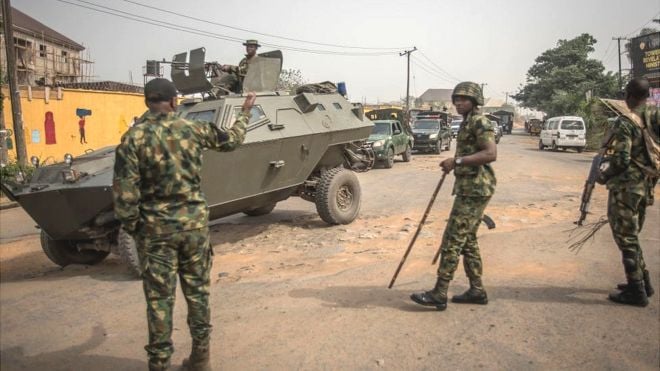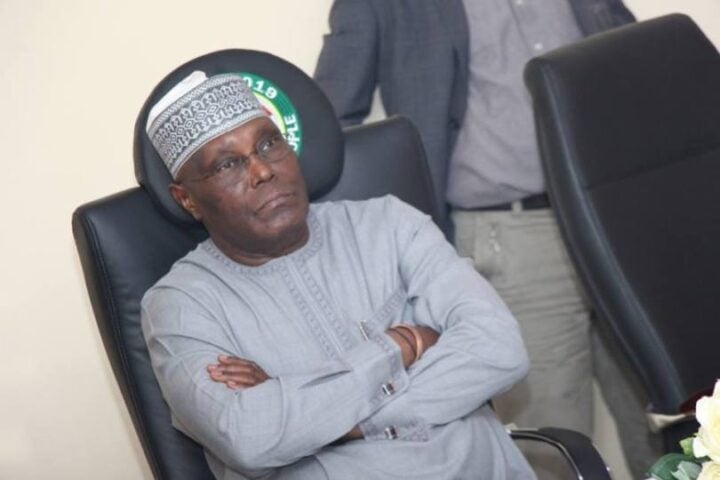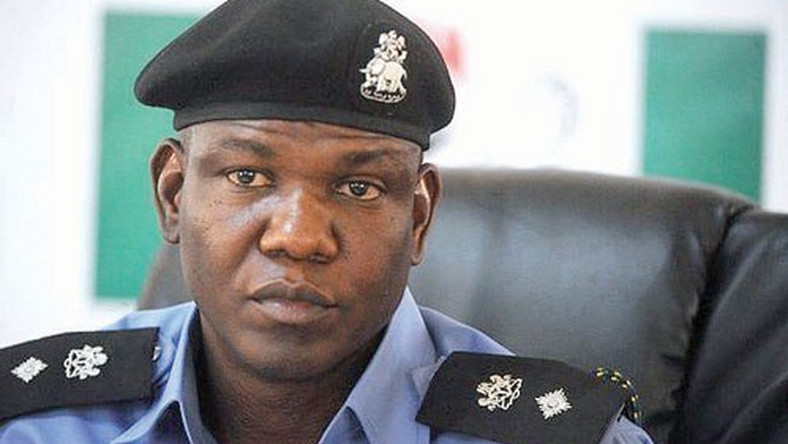BY DAVID ONMEJE
In Nigeria, the war against insurgency gathered momentum since the inception of the administration of President Muhammadu Buhari in 2015. In some quarters, it was stated that the appointment of Service Chiefs indeed contributed to the way and manner Nigeria was able to confront the Boko Haram Insurgents that occupied several swathes of land in North-East Nigeria and over 16 local government areas in Borno, Yobe and Adamawa States.
It has been stated in numerous forums that the Chief of Army Staff, Lt Gen. Turkur Buratai has led the battle for the soul of Nigeria with the display of an unalloyed commitment to the unity of Nigeria through the introduction of novel ideas in the operations of the Nigerian Army since 2015.
The recent is the revelation that 223 officers of the Nigerian Army have so far received training in various military institutions in Bangladesh under the Nigeria/Bangladesh military partnership.
Advertisement
It would be recalled that sometime in 2017, the Bangladesh Chief of Army Staff, Gen. Abu Belal Muhammad Shafiul Hug was in Nigeria where he met with key government officials to discuss bilateral issues relating to strengthening the relationship between the Armed Forces of Nigeria and Bangladesh. He stated that “Nigeria sends many officers to train in Bangladesh in different training institutions like the National Defence College and Defence Chief of Staff College all in Bangladesh.”
This strategic partnership has seen to the training of over 223 military officers from the Nigerian Army from the over 30 military training institutions in Bangladesh. This much was corroborated by the Chief of Army Staff, Lt. Gen. Tukur Buratai, who himself at some point in his military career attended a National Defence Course from the National Defence University in Bangladesh.
The Chief of Army Staff, Lt. Gen. Tukur Buratai has stated that the training he received from the National Defence University in Bangladesh equipped him better for the fight against terrorism in Nigeria. “My sojourn in Nepal during the period exposed me to how efforts of the Bangladesh Defence forces combined to defeat the insurgents and criminals of the Chittagong Hills.”
Advertisement
It can be stated that the impact of the strategic military partnership between Nigeria and Bangladesh has yielded multiple gains for Nigeria, especially in the war against terrorism. This is on the heels that the lessons learned from the Bangladesh experience in dealing with insurgency have been valuable in Nigeria. Moreover, coupled with the fact that Bangladesh and Nigeria are strong military contributors to United Nations Peacekeeping operations and both countries seek for and work for peace and stability in the international community.
The Nigerian Army has indeed fared well concerning the fight against insurgency with the level of training its personnel have been subjected to. The training received by officers of the Nigerian Army in Bangladesh is an indication of the leadership style of the Chief of Army Staff, Lt. Gen. Tukur Buratai that is harped on dynamism especially in the fight against terrorism in Nigeria.
According to Prof Stephen Bature of the Department of Defence and Strategic Studies of the Nigerian Defence Academy, Kaduna, he opined that the strategic Military partnership between Nigerian and Bangladesh has yielded positives in the sense that the training the Nigerian Army has received from the military institutions in Bangladesh have been somewhat brought to bear in the fight against insurgency in Northeast Nigeria.
The Chief of Army Staff stated this much when he received the High Commissioner of Bangladesh, Mr. Mohammad Shammeen Ashan during a courtesy visit at Army headquarters, He said that lessons he learned from Bangladesh as a student of the National Defence University in the art of counterinsurgency and counter-terrorism warfare contributed to the massive decapitation of Boko Haram and ISWAP terrorist in the North-East by the Nigerian Army.
Advertisement
As simple as the above might sound, it must be noted that when military units participate in bilateral exercises with other countries, the interaction increases interoperability between the militaries, provides for cultural exchange and understanding, and offers an opportunity to expand each nation’s capabilities while exercising potential contingencies.
This is what the Nigeria/Bangladesh military partnership has brought to the table for Nigeria and it must to noted that the foresight displayed by the Chief of Army Staff, in seeing to the sustainability of the military pact with Bangladesh must be commended.
In an interactive session by Defence Correspondents in North-East Nigeria, it was stated that the strategies employed by the Nigerian Army in recent times have been quite alien to the Boko Haram/ISWAP fighters who have continued to suffer heavy casualties and retreating to the fringes around the Lake Chad Basin region.
“The operational strategy of the Nigerian Army in Northeast Nigeria is a blend exposure and the willingness to confront the Boko Haram/ISWAP fighters headlong and this has paid off handsomely as it has been stated in numerous forums that the Nigerian Army under the Chief of Army Staff, Lt. Gen. Tukur Buratai had made tremendous inroads in North-East Nigeria and other parts of Nigeria.”
Advertisement
It can be this stated that these are some of the positives from the strategic military partnership between Nigeria and Bangladesh are evident in the setback experienced by Boko Haram/ISWAP whose ranks have been highly decimated. Thus it has been put forward that the tipping point between muddling through and moving toward victory in Nigeria was the election of leaders who translated bold vision into action since the beginning of Muhammadu Buhari’s administration in 2015. Consequently, Nigeria has been able to transform its Army from an ineffective, garrison-bound band into an aggressive force that has crippled Boko Haram/ISWAP and other militant organization in the country.
The credit must go to the leadership of the Nigerian Army whose operational policies in ways too numerous to mention have brought about the much-needed bite in the fight against the Boko Haram insurgency. The Chief of Army Staff admitted that what he learned from his study in Bangladesh indeed prepared him for the task ahead. This is indeed a welcome development, especially with the fact that he has been able to avail officers of the Nigerian Army that opportunity to benefit from the same training he received.
Advertisement
The number 223 might not sound like a big deal, but the implication is that these officers would in turn pass on knowledge to their various units and the consequent multiplier effect and boost on the morale of the troops in the battlefront.
Nigeria has indeed made substantial inroads in the fight against terrorism in the past four years, and this had been made possible through a combination of factors. Also, one of them is the strategic military partnership between Nigeria and Bangladesh. While Nigeria continues to bask in this partnership, it must be stated that the leadership style of the Chief of Army Staff came out glaring.
Advertisement
Lt. Gen. Tukur Buratai is worthy of emulation by all and sundry who recently disclosed that the Nigerian Army would continue to explore the available opportunity for further training of its officers and soldiers in the areas of tactics, staff duties, and intelligence among others.
This is indeed a welcome development and an indication that Nigeria needs more of such partnership in the future.
Advertisement
Add a comment





